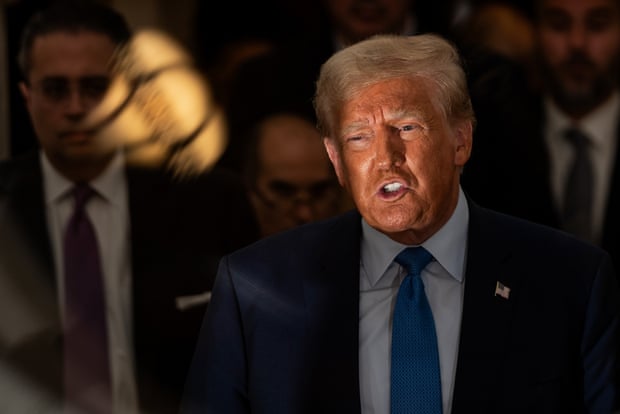As the trial resumes, David Pecker, former publisher of the National Enquirer, faces intensified questioning regarding his involvement in suppressing damaging information about Donald Trump during the 2016 election. Pecker, aged 72, will field inquiries from Trump's legal team, aiming to demonstrate that the tabloid's practice of quashing unfavorable stories about public figures predates Trump's presidential candidacy.
Pecker previously testified to acting as Trump's confidant, actively stifling stories that could jeopardize Trump's political ambitions amidst allegations of sexual misconduct. He acknowledged orchestrating payments to "catch and kill" two such stories and informing Trump of Stormy Daniels' intention to disclose her alleged affair with him.
The trial's focus extends beyond Trump, with his legal team seeking to highlight Pecker's pattern of checkbook journalism involving other celebrities and politicians, including Arnold Schwarzenegger and Tiger Woods. Pecker disclosed the Enquirer's financial incentives for stories during Schwarzenegger's gubernatorial campaign, revealing a longstanding practice of influencing media narratives.
Despite the legal proceedings, Pecker maintains a personal connection to Trump, although their last interaction occurred in 2019. Prosecutors contend that Pecker's collaboration with Trump undermined the integrity of the 2016 election, leading to his cooperation to avoid criminal charges.
This trial marks a significant legal milestone, as Trump becomes the first former president to face criminal charges. While the trial is anticipated to conclude before his election rematch with President Joe Biden, other legal battles, including attempts to overturn the 2020 election results, prolong the legal scrutiny of Trump's actions.
Meanwhile, the U.S. Supreme Court's conservative majority suggests potential legal protection for Trump, raising questions about presidential immunity. Justice Juan Merchan, overseeing the hush-money case, is yet to rule on prosecutors' requests to penalize Trump for alleged breaches of a gag order, underscoring the complex legal landscape surrounding the trial.


